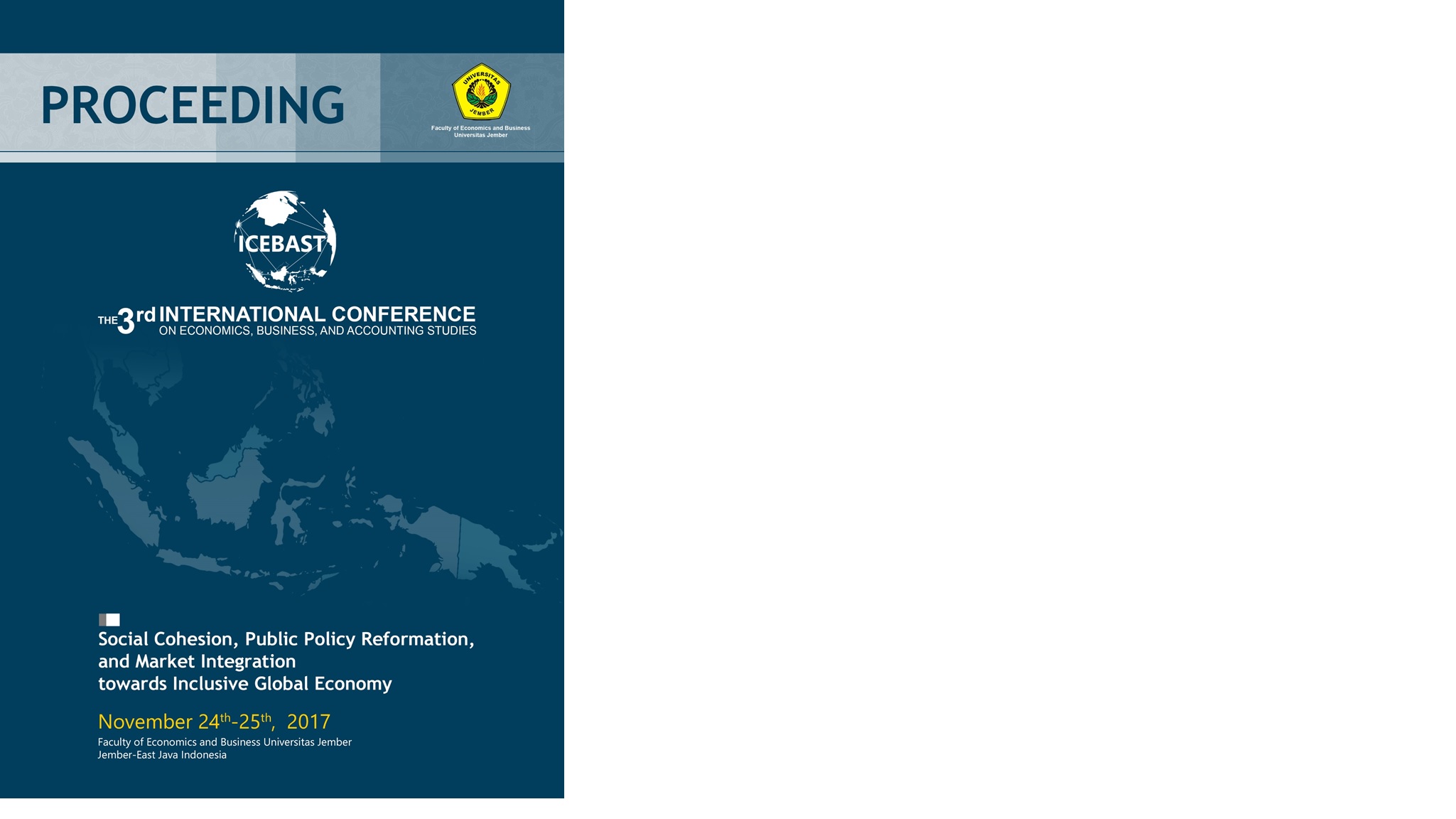INFLATION PHENOMENON IN INDONESIA
Abstract
The purpose of this research is to analyze how the effect of money supply, exchange rate, government expenditure, oil price and output gap on inflation in Indonesia and to find out whether inflation in Indonesia is included in monetary phenomenon or fiscal phenomenon. In this study the variables representing the monetary phenomenon are the money supply and exchange rate, the fiscal phenomenon is represented by government expenditure while the oil price is one of the factors affecting inflation through the supply side, and the output gap is a variable that is believed to predict inflation. This research uses multiple regression model with Error Correction Model (ECM) method. Estimation results indicate the money supply, exchange rate and oil prices have a positive and significant effect on inflation in Indonesia, while government expenditure and output gap have no significant effect on inflation in Indonesia. This research found that inflation in Indonesia is a monetary phenomenon due to the money supply and the exchange rate which is the variable representing the monetary phenomenon affecting inflation in Indonesia, while government expenditure is the variable representing fiscal phenomenon has no effect on inflation in Indonesia.


